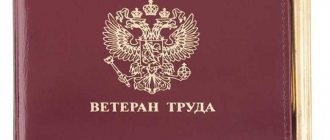What does guardianship of an elderly person mean?
In 2020, guardianship is understood as a form of support for an adult incapacitated citizen. The fact of incapacity must be confirmed by a court decision.
Expert opinion
Stanislav Evseev
Lawyer. Experience 12 years. Specialization: civil, family, inheritance law.
The World Health Organization defines elderly people as those aged between 60 and 74 years. The law does not provide for the need to deprive citizens of legal capacity based on age. Therefore, an elderly person has full legal capacity.
The exception is the situation when a citizen is deprived of legal capacity due to a mental disorder. It doesn't depend on age. However, for older citizens, the most popular cause is senile dementia.
Guardianship over an elderly incapacitated person is appointed by a resolution of the district administration. In the absence of relatives or third parties, the powers of the guardian are transferred to the head of the specialized organization.
If the citizen has not been deprived of legal capacity, then the appointment of guardianship is impossible. However, to help a capable person who needs constant outside support, patronage is assigned.
Patronage refers to physical assistance (cleaning, cooking, shopping). The guardian not only provides physical assistance, but also represents the property interests of the ward without a power of attorney.
Procedure for issuing a guardianship permit
The algorithm of actions for registering guardianship is clearly regulated by Russian legislation. Sequence of steps:
- Determine the need for guardianship. Perhaps the ward himself or his relative will come up with such an initiative. The second option is for the court to make a decision on the need to provide the person under guardianship with round-the-clock assistance.
- Collect the necessary package of documents, depending on the upcoming type of guardianship. Come to a social institution in person to write an application and submit documents.
- Submit an application to the guardianship authorities for the registration of an elderly ward and submit the collected papers to the social service employees. Both parties to the agreement must write statements: the trustee and the ward. If the court has declared an elderly person mentally incompetent, then the appeal is written by the next of kin.
- Wait for the results of checking the documents provided, studying all the characteristics of the future guardian (place of work, salary, living conditions, moral qualities). This takes no more than 1 week.
- After this, the employees of the guardianship commission draw up a report on the examination and its result.
- The Guardianship Council reviews the documents and the examination report, on the basis of which it makes a decision on whether to allow the applicant guardianship (of one type or another).
Normative base
The procedure for registration, implementation or termination of guardianship is contained in the following regulations:
- Family Code of the Russian Federation;
- Civil Code of the Russian Federation;
- Law of 2008 No. 48;
- Government Decree No. 927 of 2010.
Guardianship must be appointed within 30 days from the date of entry into force of the court decision on deprivation of legal capacity. If there is no candidate for guardianship, the powers of the guardian are transferred to the guardianship department.
Important! If a guardian is appointed for an incapacitated ward, interested persons have the right to challenge the candidacy of a representative in court.
Main classification
The main classification is regulated by the federal law on guardianship and is presented as:
- In the general order (paid and gratuitous).
- Preliminary.
Let's look at these types in detail.
Free guardianship (trusteeship) of a minor
The establishment of gratuitous guardianship implies that the guardian does not receive payment in exchange for his care.
This is a simple and fairly common type, which is most often formalized by relatives. Typically, third parties who are ready to conduct guardianship activities expect to receive payments. The guardian will receive only small benefits, which are guaranteed by the state, depending on who the ward is and his state of health.
The guardianship and trusteeship authority, when appointing a guardian, draws up an act that may indicate the duration of the powers, for example, until the minor turns 18 years old.
Guardianship automatically terminates upon the child's 18th birthday or emancipation.
If guardianship has been established over a minor, and then the child turns 14 years old, the guardian becomes a trustee, his status changes, as well as his rights and responsibilities, but the fact of care does not stop. This is stated in the Civil Code Article 40
Do not forget that it is necessary to pay attention to upbringing and education
Paid guardianship (trusteeship) – by agreement
A guardian or trustee who wishes to provide his services for a fee may apply to the guardianship authorities with a similar application. The relevant authorities enter into an agreement, in compliance with the interests of the minor ward, that services will be provided by the guardian for a fee, i.e. for a fee.
To receive payments, you must draw up one of the guardianship agreements:
- guardianship agreement (Article 16 of Federal Law No. 48),
- foster care agreement,
- foster family agreement.
The procedure and terms for concluding an agreement are determined by federal legislation.
The amount is specified in the contract and is paid through:
- income that comes from the property of the ward,
- or from third parties (for example, relatives can provide any payments for the guardian),
- or from the regional budget (established by their respective laws).
Remuneration from income from the property of the ward cannot exceed 5% of the property of the minor ward in accordance with the Government Resolution. And to determine the property, it is necessary to annually submit a report from the guardian before February 1, which contains information about the volume of property and its value.
If such a need arises, the guardian can request from the guardianship authorities the right to use the ward’s property. The guardianship authority can provide such an opportunity, and the contract will need to indicate in full the property, its cost characteristics, how the property will be used and for how long
It is important that this activity does not infringe on the rights of wards
Typically, a child or adult incapacitated ward lives in the home of his or her guardian, but in rare cases, the opposite is true. More often this is due to the fact that the ward, for example, a disabled person, has already created more suitable conditions in his home, or the guardian lives in a remote region.
Preliminary form
The Law on Guardianship (Article 12) provides the opportunity to arrange preliminary (temporary) guardianship.
This type is most often prescribed if a child has been taken away from his family for some reason, but placement in a specialized institution for orphans is considered inappropriate. For example, parents were deprived of their rights, and grandparents took responsibility for the child. This stage is considered more loyal and comfortable for the child.
The guardianship and trusteeship authority draws up an act stating that a temporary trustee is appointed. The conditions of appointment are:
- presentation of a Russian passport,
- fact of legal capacity,
- checking housing conditions.
Preliminary and full identity checks are not carried out due to the fact that the child cannot remain on the street and must be placed somewhere.
Only the absence of property orders distinguishes temporary guardianship from general guardianship. First of all, according to Art. 8 of the Basic Law, close relatives are considered for preliminary guardianship, and in the absence of such, the guardianship authority turns to persons who have undergone special training and wish to become a guardian.
During 30 days of temporary guardianship, a search for a permanent guardian is carried out or documents are drawn up so that the temporary guardian acquires the status of permanent. In the second case, the start period of permanent guardianship is calculated from the moment the temporary guardianship begins.
Requirements for a guardian
Let's consider who can be a representative.
The law allows you to transfer the care of an adult incapacitated citizen to a third party who meets the established requirements ( Article 35 of the Civil Code of the Russian Federation ):
- no criminal record;
- availability of income;
- availability of living space;
- no medical contraindications;
- full capacity.
A citizen who is subject to a court decision on deprivation of parental rights cannot be appointed as a guardian. If parental rights are restored, the restriction is lifted.
In addition, the candidate cannot previously be removed from the duties of a guardian for improper performance of duties.
A prerequisite is the consent of the citizen to receive the duties of a guardian. The law does not allow the appointment of guardianship against the will of the guardian.
Particular attention is paid to the moral qualities of the candidate. Also, a guardian cannot be a person registered at a drug treatment clinic as a patient with alcoholism or drug addiction.
Important! The law does not set an age limit for a guardian.
Financial payment for care
If a citizen wants to receive a financial reward for performing the duties of a guardian, this wish must be reflected in writing in an application that will be submitted to the guardianship authorities for the appointment of guardianship.
Requirements for a person claiming responsibility for another citizen:
- adulthood (from 18 years old);
- no criminal record;
- the fact that there is no drug or alcohol addiction;
- mental balance (medical fact of mental health);
- full legal capacity;
- permission for guardianship;
- consent of the ward.
All these facts will be checked by the responsible authorities; if a discrepancy is identified, the employees will reject the proposed candidate.
Terms of custody
Let's look at the cases in which guardianship is granted to the legally incompetent. To appoint guardianship over an adult citizen, it is necessary to declare him incompetent in court. In this case, the guardian fully represents the interests of the ward.
One of the important points is the representation of the property interests of the incapacitated person. Every year, before February 1, the guardian submits a report on the expenditure of the ward’s funds to the guardianship department.
If the elderly parents were not deprived of legal capacity, but limited, then guardianship is established. In such a situation, the trustee has only part of the rights. The citizen independently makes transactions with the consent of the trustee.
Guardianship of an incompetent person is carried out on a paid or gratuitous basis. When a paid form of placement is assigned, a guardianship agreement is concluded between the guardian and the district administration.
Payment for the services of a guardian is made from the property of the ward. The limit cannot exceed 5% of the monthly income of the disabled person.
The ward is not required to live with a guardian. Even if a citizen needs constant outside care, a representative can visit him daily, hire a nurse or provide assistance in another form.
If a citizen is placed in a specialized organization, then guardianship is terminated.
Guardianship
Guardianship gives the guardian a wide range of rights and responsibilities. However, it is not always possible to establish such a form of legal relations. For example, if the grandfather or grandmother is mentally healthy and aware of their actions, then it will not be possible to obtain guardianship over them. If the fact of incapacity has already been officially established, then guardianship is established on the basis of Art. 14 Federal Law No. 48.
In particular, it talks about two ways to formalize guardianship:
- with the voluntary consent of the ward - by agreement;
- in case of incapacity or refusal of guardianship - after checking the guardian by a higher authority and rendering a verdict on the possibility of establishing guardianship.
Rights and obligations
Guardianship for many relatives seems to be a more profitable care option than patronage due to the receipt of a wide range of rights and powers. Thus, the incapacity of an elderly person does not give him the opportunity to independently manage his property and income. The general range of rights of a guardian includes the following (Article 15 of Federal Law No. 48):
- the opportunity to protect the rights of your ward without first obtaining consent;
- obtaining the status of a legal representative;
- disposal of the property and income of the ward, but only in his interests;
- the possibility of living together (most often on the territory of the guardian, but with the consent of higher authorities the opposite situation is possible);
- receiving all payments and benefits due to a senior citizen into your own account for the possibility of subsequent spending.
However, the guardian must report annually for all expenses incurred, filling out a report approved by Decree of the Government of the Russian Federation No. 927 of November 17, 2010. It contains information about all types of property of the ward (including real estate, vehicles, shares and securities), transactions carried out with them during the reporting period, income received and expenses incurred. You will have to account for all expenses, because in the case of guardianship, it is the guardian who manages the money of the ward and receives all the required payments for him.
Link to document: “On guardianship and trusteeship”
Reward
The possibility of receiving money from the person under care does not mean that it can be spent for its intended purpose. On the contrary, this form of spending is not permitted by law. Moreover, the guardianship agreement itself in most cases is concluded free of charge, in accordance with paragraph 1 of Art. 16 Federal Law No. 48.
However, in paragraph 2 of Art. 16 Federal Law No. 48 provides for the possibility of concluding a remunerative agreement between the parties. They can agree on the cost of the remuneration and indicate this amount in the contract, but it should not exceed the maximum value indicated in the Rules for concluding a guardianship agreement for adult citizens (approved by Decree of the Government of the Russian Federation No. 927 of November 17, 2010).
Clause 4 of the Rules provides a clear limitation: 5% of the income received from the property of the ward for the reporting period.
Requirements for a guardian
Art. 35 of the Civil Code of the Russian Federation defines very specific requirements for the future guardian. Failure to comply with any of the points entails the impossibility of obtaining guardianship.
The most important conditions look like this:
- age – from 18 years;
- full legal capacity;
- no criminal record related to causing harm to human life or health;
- the future guardian is not deprived of parental rights in relation to minors.
Guardianship authorities, when assessing an applicant’s candidacy, pay attention to his personal characteristics; it is not for nothing that one of the required documents is a reference from the place of work
Frequency of inspections
In addition to reporting, current guardians have to deal with other means of verification. Thus, the Inspection Rules (clauses 4 and 4.1), approved by Decree of the Government of the Russian Federation No. 927 of November 17, 2010, have instructions on the frequency of their conduct. It all depends on the degree of relationship and the total duration of guardianship:
| Check frequency | Guardian - close relative | In other cases |
| In the first year of guardianship | 1 time per year | 1 time in the first month + 1 time in 3 months until the end of the first year |
| In subsequent years | Once every 3 years | Every six months |
More frequent visits are considered unlawful, which the guardian can report to higher authorities.
Registration procedure
The procedure for obtaining guardianship over a mother takes a long time:
- Obtaining an ITU opinion . You must first pass a medical examination and sign up for a commission at the district office. By decision of the commission, a conclusion is issued about the presence of a mental illness, and a disability is assigned. Based on documents that a citizen cannot understand the consequences of his actions, he will need to go to court. The process can take from 3 to 6 months.
- Going to court . The legal process can be initiated by the guardianship department or relatives. During the process, you must present medical documentation and an ITU report. After the court decision enters into legal force, guardianship may be appointed over the incompetent person. The procedure takes from 2 to 3 months.
- Registration of guardianship . The applicant applies to the guardianship department at the place of residence of the incapacitated person. He submits an application and personal documents. After which, he is appointed as the representative of the elderly person. The process takes no more than 30 days.
The law provides for the possibility of appointing one or more guardians. If a citizen needs two or more representatives, guardians must stipulate the list of powers of each of them and approve them in the guardianship department. For example, one deals with property issues, the second with cleaning, and the third with care.
Algorithm of actions
The procedure for registering guardianship over elderly people is established by Government Resolution No. 927 of 2010.
Algorithm of actions:
- Collection of documents.
- Obtaining a conclusion.
- Contact the guardianship department.
- Submitting an application.
- Appointment of guardianship.
Contacting the guardianship department
Let's consider where to obtain guardianship for the elderly. The citizen must contact the guardianship department at the place of registration of the incapacitated citizen.
Responsibility for an adult incompetent person is assigned by the court to the guardianship department at the place where the court decision was made.
You must first confirm your appointment time with a specialist. An employee of the guardianship department will conduct a consultation, provide a list of documents and order information that should be received as part of interdepartmental interaction.
Application for guardianship
You can apply for guardianship of your grandmother:
- directly to the guardianship department;
- using an electronic document (through State Services);
- through the MFC (if an agreement has been concluded between the district administration and the center.
The citizen independently chooses where to apply. However, the easiest option is to contact the guardianship department in person. A specialist will immediately check all documents and give advice on correcting violations.
Let's look at how to fill out the application correctly:
- name of the district administration;
- FULL NAME. head of administration;
- applicant's details (full name, address, passport details);
- document's name;
- information about the potential ward;
- details of the document on recognition of incapacity;
- information about the presence/absence of family ties;
- data on cohabitation;
- request for guardianship;
- date and signature.
Sample application for guardianship of a senior citizen
Resolution on appointment of guardianship
Let's consider what gives a guardian the right to represent the interests of a pensioner. The main document confirming authority is the decision on the appointment of guardianship.
A resolution on the appointment of guardianship is an act of a local government body. It is drawn up in writing and contains the personal signature of the head of the local administration or his deputy. The form has an issue date and serial number. Information about all decisions is entered into a special journal.
The document does not contain an expiration date. The law establishes the following reasons for termination of the resolution:
- death of a guardian or ward;
- restoration of legal capacity in court;
- refusal of the guardian to responsibilities;
- removal of a representative by decision of the guardianship department.
What is apartment-based care for the elderly?
There is no such thing in the legislation of the Russian Federation as “guardianship of an elderly person with the right to subsequent inheritance of property.”
That is, the guardian will NOT inherit the property of the ward, including housing. But nothing prevents the person under guardianship from leaving some of his property, including housing, to his guardian at his own request.
This is done in various ways, for example, by drawing up a will in favor of a guardian, or an annuity agreement. Lonely old people sometimes consider this step as a real opportunity to receive decent care in old age.
And for a person who does not have housing or even hope of acquiring it, the chance to inherit an apartment is also extremely tempting, even if he has to devote several years to the unpleasant work of caring for the elderly.
Here the interests of the parties coincide, and, subject to a conscientious attitude towards mutual obligations, both parties will receive what they want.
Unfortunately, there are abuses on both sides, and a pensioner, as a more vulnerable person, often becomes a victim of negligence, or even outright fraud.
But, if we do not touch upon criminal or moral issues, then cooperation between the guardian and the ward, based on the inheritance of housing, can be mutually beneficial.
You just need to formalize everything correctly from a legal point of view, with an agreement and (or) a will, certified by a notary. When drawing up a contract, you must try to take into account possible risks on both sides and reduce them to the maximum extent possible.
There are few contracts of this kind, for example, annuities, since each party is afraid of being deceived:
- Old people are afraid of the possibility of being left alone with scammers.
- Potential renters fear that the burden they will shoulder will be unbearable.
Elderly people often try to conclude a rental agreement not with a private person, but with the state. In this case, care can be received minimally, but guaranteed. Most often this is living in a nursing home, where the elderly are under supervision and medical supervision.
Documents required to establish guardianship
Let's look at how to become a guardian for the elderly. To do this, you need to prepare a package of documents.
The list differs for the following categories of applicants:
- Strangers.
- Relatives who have lived with the potential ward for more than 10 years.
List of documentation for candidates for guardianship of a disabled adult
| List of documents | Strangers | Relatives who have lived with the ward for at least 10 years |
| Passport | + | + |
| Document on completion of training | + | — |
| Medical report | + | + |
| Marriage document (if available) | + | + |
| Autobiography | + | — |
| Consent of all family members | + | — |
| Income information | + | — |
| Statement | + | + |
Less stringent requirements apply to citizens who have lived with a disabled adult for more than 10 years. Moreover, it does not matter who is the owner of the residential premises (guardian or ward). However, the applicant must prove the relationship. You must provide documentation confirming your relationship.
A number of documents are requested by guardianship department specialists independently. The list includes:
- information about pensions from the Pension Fund of the Russian Federation;
- criminal record information;
- an extract from the house register;
- information about the sanitary condition of the premises;
- conclusion on the possibility of being a guardian.
The specialist must take the information within 2 days from the date of submission of the application. The response is provided as part of interdepartmental cooperation within 5 days from the date of receipt of the request.
Within 7 days from the date of submission of the application and provision of documents, a specialist from the guardianship department must visit the candidate’s living quarters. He conducts an examination and draws up a report. The document is signed within 2 days and after 3 days is provided to the candidate.
Ward's property
Above, we examined the provisions of Article 37 of the Civil Code of the Russian Federation in relation to the property of a ward citizen as a whole, without dividing it by type. But in Art. 19 Federal Law No. 48 of April 24, 2008 provides for the specifics of handling the real estate of the ward of the guardian. In particular, this article states that alienation of the immovable property of a ward is possible only in certain situations:
- if the property is recovered by a court decision;
- if the property is foreclosed on for non-payment of mortgage debt;
- if the property is transferred under a rental agreement. Moreover, it must be concluded for the benefit of the ward citizen;
- if the property is exchanged for another. Moreover, again, the exchange must provide some benefit to the ward;
- the residential premises are being sold because the ward changes his place of residence;
- the property is sold in order to pay for the expensive treatment of the ward.
Let us repeat once again that these transactions are possible only with the permission of the PLO, which must be obtained in advance. If it is discovered that the above-described actions were carried out with the residential premises without the permission of the Public Organization, then this institution is obliged to immediately go to court on behalf of the ward and demand termination of the contract. In this case, all property must be returned to the ward, and the guardian must compensate for the damage.
Guardianship of an elderly relative after 80 years of age
A citizen over 80 has the right to care. He can get help from a relative or a third party.
If he is deprived of legal capacity, guardianship is appointed. If a citizen does not have mental disabilities, then patronage is established.
When a person turns 80, he becomes entitled to a supplement, which is paid when an assistant is appointed. The assistant is not paid additional pay, but he receives seniority.
Assistant Requirements:
- age from 14 to 60 (for women) or 65 (for men) years;
- absence of a court decision on deprivation of legal capacity;
- lack of official employment.
Important! A minor aged 14 to 18 years can perform the duties of an assistant only with the permission of the district guardianship department and with the consent of parents or other representatives. But he cannot be a guardian of an incapacitated person, only an assistant.
At the same time, a citizen cannot have official employment (under an employment contract, under a civil law contract, individual entrepreneur, founder of an LLC).
Who legally has the right to obtain guardianship?
So, the law also regulates the question of who has the right to obtain guardianship over an elderly person. So, the following can go through this procedure and acquire a new legal status:
- relative of a citizen;
- any other person who wishes to take on such a responsibility as providing an elderly person with the benefits he needs.
Of course, most often we are talking about relatives, since in other cases it is rare that a person will agree to take on the burden of caring for and providing for an unfamiliar pensioner.
Moreover, despite the fact that the presence of a family connection is not necessary in this case, there are many other requirements that applicants for the role of guardian will have to meet. Let's take a closer look at what we're talking about.
1. First of all, it must be said that only a person who is an adult can become a guardian, that is, who has reached 18 years of age - a milestone defined by the legislation of the Russian Federation.
2. A citizen who can be characterized as a person who is fully capable, has the opportunity to work, and provide for one more person besides himself, and, possibly, those whom he already provides.
3. It is also necessary that the citizen can be characterized as a person who is prosperous in all respects:
- the person must not have a criminal record;
- the person must not be dependent on alcohol or drugs.
4. If previously a citizen applying to become a guardian of an elderly person 80 years old was deprived of parental rights, he will be denied guardianship, since in fact, a pensioner at this age often resembles a small child in his helplessness.
A citizen who has previously been deprived of parental rights cannot be a guardian
5. Pathological diseases are another item that an applicant to become a guardian must lack. So, we are talking, first of all, about diseases such as:
- tuberculosis, the development of which is in the first and second stages, for which dispensary observation of the patient is recommended;
- any mental disorders that affect the behavior of the individual and the actions he performs;
- oncological diseases in which the potential guardian has malignant tumors at the fourth and third stages;
- various diseases of infectious etiology, which also require the applicant to become a guardian to be under dispensary observation;
- various injuries, due to which the person in question received a disability of the first group.
Many potential guardians are interested in the question of how they can prove their mental and physical health, thereby confirming their ability to achieve the status they are interested in. We answer: in order to determine the presence of any pathology, the authorities regulating issues of guardianship and trusteeship send each applicant to undergo a specialized medical commission. Depending on the results of its completion, the results may be as follows:
- the person will be confirmed of his stable state of health and will be allowed to continue the procedure of becoming a guardian;
- due to the discovery of any disease, the person will be denied further participation in this procedure.
If you receive a refusal, do not be upset. Provided that you can successfully improve your health, you are allowed to initiate this process again, and if improvement is proven, you will be able to complete the procedure.
6. The living space of a potential guardian should be inspected to ensure it meets the requirements for maintaining an elderly person. The inspection is carried out by the authorities responsible for:
- implementation of guardianship;
- guardianship.
Living space survey
The survey of the living space is carried out by agreement with its owner. Provided that government officials are satisfied with what they see, you can become a guardian of an elderly person.
7. The next condition under which you will be allowed to achieve the desired status is having a permanent income
At the same time, it is important that this income is official, since it is quite possible that the relevant authorities will ask you for documents confirming the presence of regular income
Provided that you meet the requirements listed above, you are quite suitable for the role of the person to whom the state entrusts guardianship of a senior citizen.
How much do caregivers earn?
The law provides for a special payment for guardians in old age. It is transferred by the Pension Fund, in conjunction with the pension of the ward. Compensation in 2020 is 1200 rubles.
It is not assigned to persons who receive 2 pensions. These include security forces, police officers, firefighters, police officers and drug enforcement officers.
Let's look at how to get benefits. A citizen must contact the district office of the Pension Fund with an application.
It is also necessary to submit the following list of documents:
- personal passport;
- guardian's statement;
- senior citizen application;
- work record or information about lack of employment;
- a certificate from the employment center stating that the applicant is not registered;
- pensioner’s personal passport;
- work record of the ward (if available);
- guardianship order.
The guardian does not have to charge the ward additional payment for his services.
If guardianship is appointed on a paid basis, the guardian can receive up to 5% of the ward’s income under the agreement.
Important! The ward's pension should be spent on his needs. The guardian shall report annually to the authorized body for expenses.
Reasons for stopping payments
If there are reasons to terminate the payment, the pensioner or citizen caring for the care must inform the authorized body in person or through the State Services electronic service within 5 days.
Reasons for stopping payments:
- death of a pensioner or compensation recipient;
- employment of the recipient;
- assigning a pension to the curator;
- registration at the employment center.
The law gives the right to terminate payments to:
- pensioner;
- recipient;
- social bodies.
If a citizen provides care improperly, ignores his duties, or has committed a crime against a pensioner, then social service employees have the right to submit a request to the Pension Fund to terminate payments.
The month in which the events that led to the termination of compensation occurred is paid in full. Payments stop on the 1st day of the next month.
Rights and responsibilities of a guardian
Let's consider who has the right to become a representative of an incapacitated person. The guardian of an incapacitated person has significantly fewer rights than the representative of a minor. However, the list of responsibilities does not differ.
Rights of a guardian of an elderly person:
- for communication;
- for cohabitation;
- to receive remuneration (with a paid form of support);
- for compensation;
- for the use of the ward's property.
Responsibilities of a representative of an elderly citizen:
- for the protection of property rights;
- health care;
- by content;
- on representation of interests in government bodies;
- on provision.
The guardian does not inherit the property of the ward if he is not his relative. The will of an elderly person will not have legal force if it is drawn up after the citizen has been declared incompetent.
The ward inherits after the death of the guardian as his dependent. Moreover, it does not matter whether they lived together or not. The interests of the ward during inheritance must be protected by specialists from the guardianship department.
Is property inherited?
A reasonable question that arises for guardians is the right to inherit real estate during foster care. The guardian does not automatically receive inheritance rights. However, in the absence of direct family ties, implying the transfer of property after the death of an elderly person, it is necessary to draw up a will for the ward, who voluntarily wishes to bequeath his property to the guardian.
Relationships are monitored by guardianship authorities to assess the degree of care, the absence of oppression of the rights of an elderly person, in order to avoid psychological pressure. If supervisory employees identify violations, the authority stops these relations and terminates the contract according to the law. The parties themselves also have the right to unilaterally refuse previously concluded agreements.
What are the pros and cons
When arranging guardianship for elderly loved ones, you need to weigh all the pros and cons.
Main disadvantages:
- high level of responsibility;
- regular checks from the guardianship department;
- the need for annual submission of a guardian's report;
- the need to care for a disabled person;
- regular need to visit government agencies (social security, hospital, guardianship department).
Main advantages:
- Confidence in proper care for an elderly relative . Government agencies often provide extremely low levels of care.
- Receiving remuneration or compensation . Although the amount is small, it is an additional contribution to the budget.
- Obtaining experience . If a citizen is not employed, he can register with the Pension Fund of the Russian Federation. The guardian is accrued seniority.
Is time spent caring for a pensioner included in length of service?
Yes, in accordance with Article 12 of the Law “On Insurance Pensions” No. 400-FZ. It turns out that the KVU, as state support, motivates the trustee not only with money, but also with the opportunity to replenish the length of service in anticipation of a future pension.
For one year of care, the caregiver earns 1.8 points, and this year itself is included in the work experience.
If care is provided for several pensioners or disabled people over 80 years of age, and there is a spread of dates, then the length of service includes the total period during which care was provided for at least one disabled person.
The years are counted once, and the increase in points is applied once, regardless of how many disabled persons were in the care of the guardian - that is, the fact of care itself is important for the length of service . But the guardian receives money (KVU) for each person under his care.









